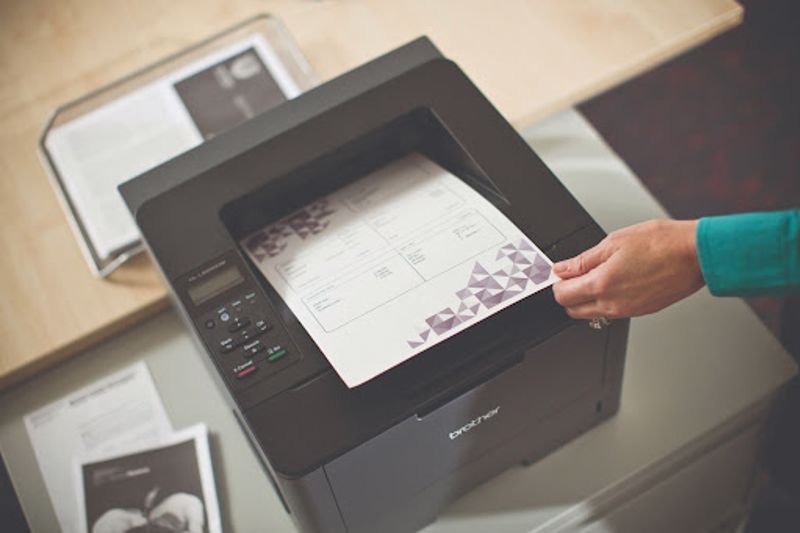Eliminating waste with a print management solution

As a fundamental workflow, few processes are as important to your business as printing. Not only does it impact cost, security and productivity, but it’s also directly connected to your organisation’s sustainability effort.
That’s what makes print management such a significant responsibility. When you oversee a print environment, it’s your duty to ensure that all employees are printing with accountability, devices are used efficiently, and that waste is kept to a minimum.
But without effective solutions in place, this goal is easier said than done. Here, we’ll discuss the obstacles of efficient print management and what you can do to overcome them in your business.
The challenges of traditional print management
Traditional print management systems are on-premise technologies, meaning that they’re installed directly onto your office computers and are bound to that one location. Between the initial setup, installation and integration with other systems, this process can be difficult and time-consuming.
Simply put, traditional systems are insufficient for the needs of the modern organisation. Consequently, relying on legacy systems can produce a number of challenges:
- Lack of oversight: This is especially true for hybrid work environments that lack any physical connection to their remote print deployments. This lack of visibility, according to the IDC, is one of the most significant obstacles facing distributed businesses in 2022. Without oversight, you can’t keep tabs on what or how employees are printing
- Wasted consumables: Not only is this bad for the environment, but it’s also a major waste of company resources. Wasting ink, toner and paper is detrimental to sustainability goals and is a significant cost to the company
- Hardware failure: Excessive printing inevitably leads to undue wear and tear on the machine. This accelerates the life of the device and necessitates a replacement if not maintained or used properly
- Time wasted: When devices go down, IT departments must dedicate their time to troubleshooting, repairing and replacing hardware. This is time that is best spent elsewhere in more productive or critical areas
Controlling costs with effective print management software
Many companies have already taken notice of these challenges and are preparing to abandon their legacy print management systems and take control using current and emerging technologies.
According to Quocirca, 73% of organisations expect to transition to cloud print management by 2025. When you consider the substantial cost-effective benefits that cloud solutions provide, it’s no wonder so many businesses are making the leap.
Cloud-based software solutions, such as PaperCut, allow you to set print quotas, policies and custom alerts, even in remote locations. This allows you to get a handle on wasted consumables and mitigate waste in real time.
For example, if a user mistakenly sends a large and costly print job to their machine, administrators can be alerted of the incident and cancel the job from an admin portal and educate the user. Likewise, you can configure your solution to automatically send print jobs to the device with the lowest page cost, allowing you to reduce your cost per page.
It’s also important to note that cloud-based systems empower you with print analytics. IT administrators and managers can leverage data and reports for improved real time decision making as it relates to individual users or wasted material.
 PaperCut can be used to eliminate wasteful printing habits and maximise your consumables
PaperCut can be used to eliminate wasteful printing habits and maximise your consumables
How to save time and increase productivity
Cloud-print management systems also provide countless time-saving advantages that allow you to streamline print management for a more productive workplace.
With the right solution, you stand to gain the following benefits:
- Simplified management: You can reduce time spent deploying and managing many print drivers with a solution that provides immediate access to the entire print fleet regardless of location. This means less setup time, no waiting for your print job on a single device and more time performing critical tasks
- More control: By curbing wasteful habits, hardware won’t go down unexpectedly or be without the necessary consumables. These disruptions interrupt workflows and waste precious time. Plus, they’re a hassle for administrators to sort out on their end
- Error alerts: If users try to print on a device that’s out of paper or toner, they’ll receive an alert before the job is released. This saves them time spent discovering or mitigating this issue and allows them to select another device
Tips for eliminating waste with a print management system
Effective print management is just as much about sustainability as it is about productivity. In fact, 83% of organisations expect sustainability to be important to their business by 2025, per Quocirca.
Luckily, there are several ways to support sustainability through print management. Here are a few basic tips you can try in your business:
- Force grayscale: Filters and rules can be configured to force users to print in grayscale, rather than waste ink and energy on wasteful colour printing
- Mandate duplex: Likewise, mandating double-sided printing cuts paper consumption in half while also reducing cost
- Hold and Release: Using Hold and Release queues allows you to reduce uncollected print jobs, save on consumables and also protect sensitive information

Print management is an essential part of your business. That’s why Brother and PaperCut have partnered together to provide businesses a powerful cloud-based solution that streamlines print management, improves sustainability and reduces bottlenecks throughout your organisation.
To learn more about how we can support your print management needs, contact our team today.

Resource Library
Be the first to receive exclusive offers and the latest news on our products and services directly in your inbox




